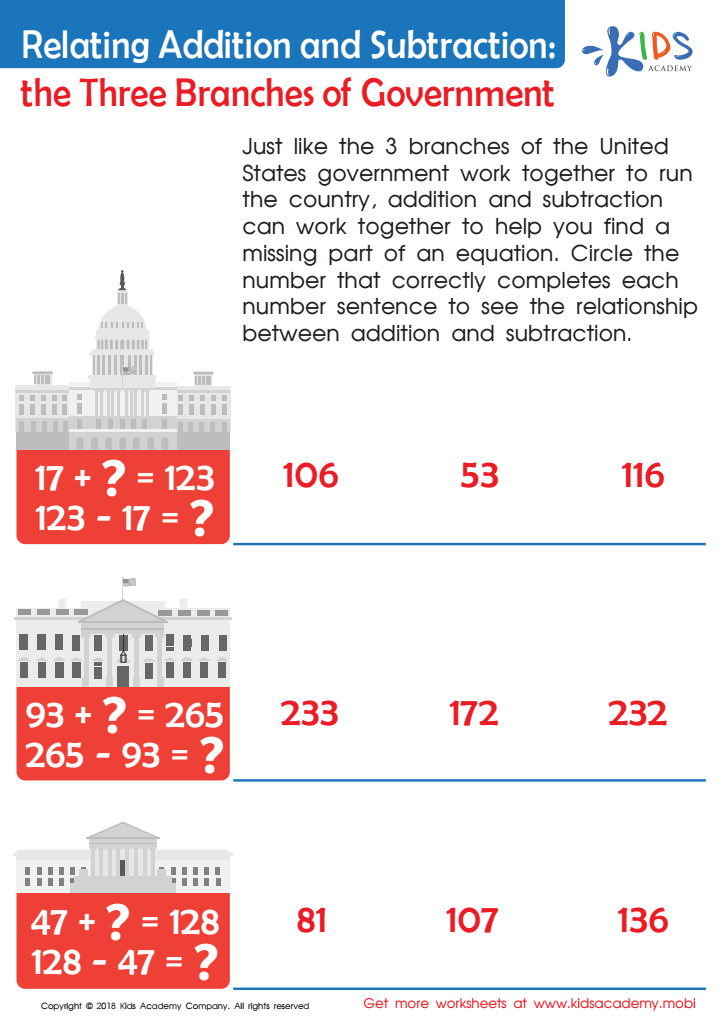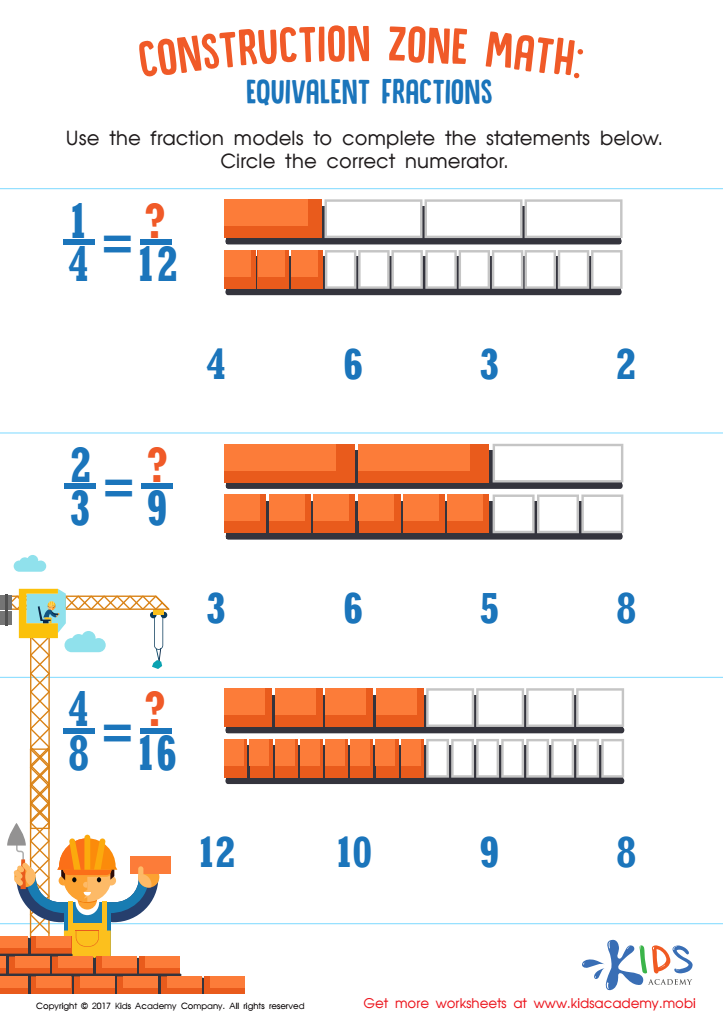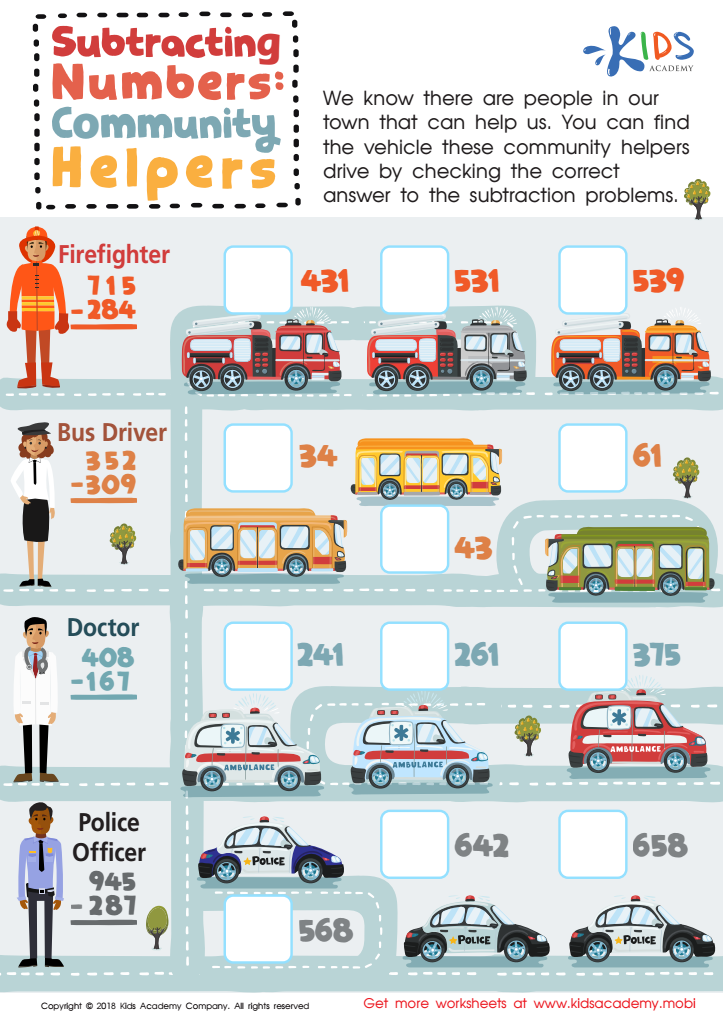Enhancing problem-solving abilities Normal Math Worksheets for Ages 3-8
3 filtered results
-
From - To
Enhancing Problem-Solving Abilities Normal Math Worksheets for Ages 3-8 are expertly designed to foster critical thinking in young learners. By offering fun and engaging exercises, these worksheets help children develop essential math skills such as basic arithmetic, pattern recognition, and logical reasoning. Each worksheet is tailored to be age-appropriate, ensuring a gradual and effective learning curve. Our printables not only make math practice enjoyable but also inspire a love for learning through interactive and hands-on activities. Perfect for both teachers and parents, these worksheets are a reliable resource to boost your child's problem-solving abilities and confidence in math.


The Three Branches of Government Worksheet


Equivalent Fractions Worksheet


Subtracting Numbers: Community Helpers Worksheet
Enhancing problem-solving abilities in mathematics for children aged 3-8 is crucial because it lays the foundation for their future academic and everyday life skills. During these formative years, young minds are highly receptive and capable of acquiring new concepts. By fostering strong problem-solving abilities, parents and teachers help children appreciate and understand the logic and processes behind mathematical concepts rather than just memorizing facts.
Problem-solving skills teach children how to approach and systematically solve various challenges. This includes focusing on critical thinking, persistence, and adaptability, which are essential life skills extending beyond mathematics. Additionally, children who develop these abilities from a young age are more likely to enjoy and excel in math as they grow older, preventing the anxiety and aversion to math that some children develop.
Moreover, engaging young children in problem-solving exercises encourages curiosity and exploration, fostering a growth mindset. It helps children see mistakes as natural and valuable learning opportunities instead of as obstacles. MarionettingTheseLaunching self-sufficient, innovative thinkers can navigate complexities both in school and in personal life, eventually contributing positively to society.
Thus, by focusing on improving mathematical problem-solving skills at an early stage, parents and teachers are nurturing competent, resilient, and confident individuals who are well-equipped for future academic and life challenges.
 Assign to My Students
Assign to My Students

















